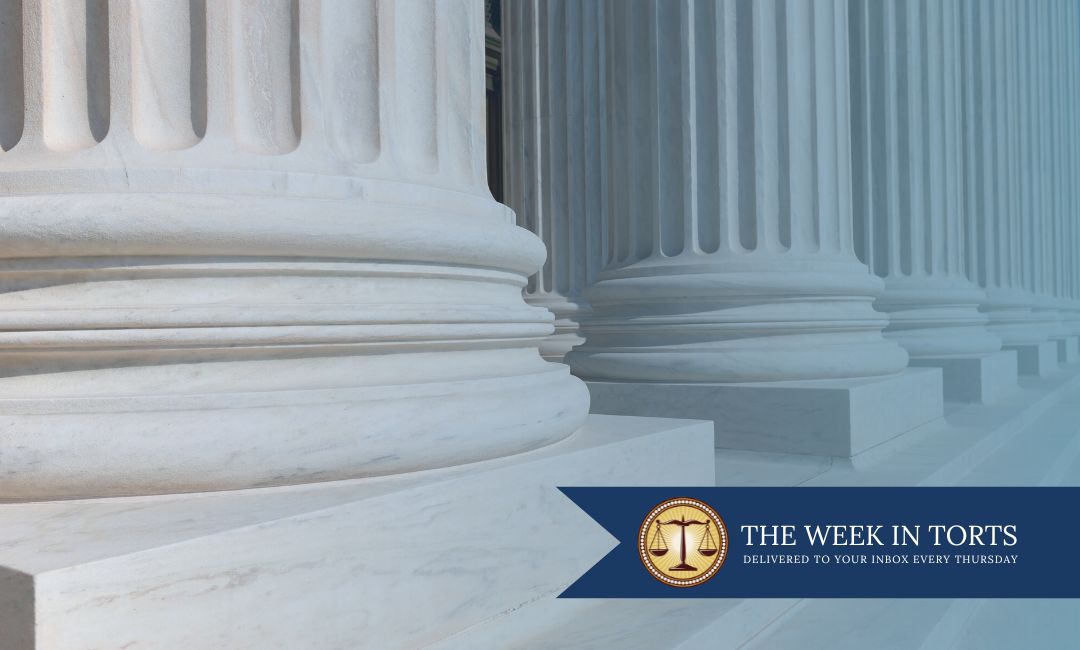The Week In Torts – Cases from March 10, 2025

Clashing evidence = evidentiary hearing on jurisdiction
FLORIDA LAW WEEKLY
VOLUME 50, NUMBER 10
CASES FROM THE WEEK OF MARCH 14, 2025
TRIAL COURT ERRED IN DENYING MOTION TO DISMISS FOR LACK OF PERSONAL JURISDICTION FOLLOWING NON-EVIDENTIARY HEARING WHERE COMPETING AFFIDAVITS AND SWORN PROOF CREATED DISPUTED ISSUES OF JURISDICTIONAL FACT
BRP-ROTAX GMBH & Co KG v. Ciccolini, 50 Fla. L. Weekly D578 (Fla. 3rd DCA Mar. 5, 2025):
In Florida, the test for jurisdiction is a two-pronged inquiry as set forth in Venetian Salami Co. v. Parthenais, 554 So. 2d 499 (Fla. 1989). That analysis determines whether a Florida court may properly exercise personal jurisdiction over a nonresident defendant.
Initially, under the Venetian test, the plaintiff bears the burden of pleading sufficient jurisdictional facts to fall within the long-arm statute. If the allegations in the complaint sufficiently establish long-arm jurisdiction, then the burden shifts to the defendant to contest the jurisdictional allegations in the complaint or to claim that the federal minimum contacts requirement has not been met by way of affidavit or other similar sworn proof.
If properly contested, the burden then returns to the plaintiff to refute the evidence submitted by the defendant also by affidavit or similar sworn proof. If that proof is in conflict, the trial court must conduct a limited evidentiary hearing to resolve the factual dispute.
Here, the plaintiff alleged proper jurisdictional facts, and the defendant filed two declarations refuting those allegations. The plaintiff then responded with an affidavit from the plaintiff’s counsel by attesting that she had visited various online sites that were referenced in the response, showing that the web pages found supported jurisdiction in Florida.
The trial court conducted a non-evidentiary hearing and then denied the motion to dismiss.
Applying the de novo standard of review, the Third District held that the trial court erred in failing to conduct an evidentiary hearing before making its jurisdictional determination. The competing affidavits and other similar sworn proof submitted by the parties in satisfaction of their respective burdens did create disputed issues of jurisdictional fact that could not be harmonized or resolved without an evidentiary hearing, and thus the court reversed for that hearing.
TRIAL COURT ERRED IN AWARDING ATTORNEYS’ FEES WITHOUT HOLDING AN EVIDENTIARY HEARING AS TO THE REASONABLENESS OF AMOUNT
Farrington v. Carrington Mortgage Services, 50 Fla. L. Weekly D558 (Fla. 2nd DCA Mar. 5, 2025):
Under Florida law, the determination of a reasonable award of attorneys’ fees requires an evidentiary hearing; the mere affidavit setting for the number of hours and the reasonable hourly rate is not enough to support a fee award if the other side objects.


